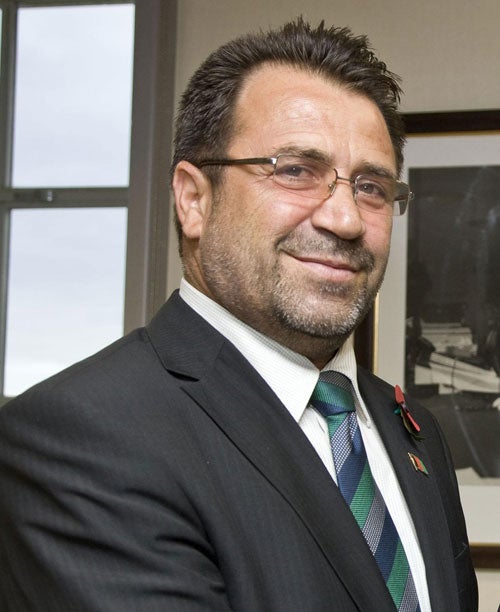Key ally in Helmand privately criticised British policies

The Governor of Helmand, regularly put forward by London to publicly promote the UK's achievements in Afghanistan, privately complained to the Americans about shortcomings of British policy and the supposed failure to win over local people in a key battleground against the Taliban.
Gulab Mangal has been perceived as representing the UK's point of view in the Afghan hierarchy, and the British Government has strongly resisted attempts by President Hamid Karzai to replace him.
But leaked US diplomatic cables reveal that Mr Mangal urged a US team led by Vice-President Joe Biden to send in American forces to Helmand because in his view the British had failed to exercise control at Sangin, which had become strategically significant in the war.
The cables, in the latest tranche to be supplied by WikiLeaks, also gives details of President Karzai bemoaning the rise of violence in the then relatively peaceful Helmand since UK forces were sent there in 2006.
The British military would resent Mr Mangal's claims of inaction in Sangin, where 105 members of the forces died while confronting a relentless Taliban bombing campaign. The town and its hinterland was handed over to American control earlier this year.
Mr Mangal, however, told Mr Biden that British security in Sangin was inadequate and did not even extend to the bazaar of the small town. After saying: "I do not have anything against them [the British]," the governor continued: "They must leave their bases and engage with the people."
The problem was not lack of troops but the mentality of the UK forces, he charged: even if they brought in thousands more, "they would need a new plan and shift of focus to connect with people".
Another US cable revealed that Mr Mangal berated British officers over the alleged failure to extend security. "Stop calling it Sangin district and start calling it the Sangin base – all you have done here is build a military camp next to the city."
Another senior Afghan official, Rangin Dadfar Spanta, now a senior security adviser to President Karzai, said when he was Foreign Minister that the arrival of 2,000 reinforcements for the British force in Helmand would not change much as "they were not ready to fight as actively as American soldiers".
General Dan McNeill, US commander of Nato forces in 2007, also attacked British policy at the time, especially over the decision to pull out of the Helmand town of Musa Qala after an agreement with local elders which subsequently led to the Taliban taking over the town.
However, the US commander's views emerged during that period and his aggressive conduct of the war, earning him the nickname "Bomber" McNeill raised the number of civilian casualties and fuelled Afghan anger against international forces. Much of that strategy was abandoned by the General's American successors.
Join our commenting forum
Join thought-provoking conversations, follow other Independent readers and see their replies
Comments
Bookmark popover
Removed from bookmarks